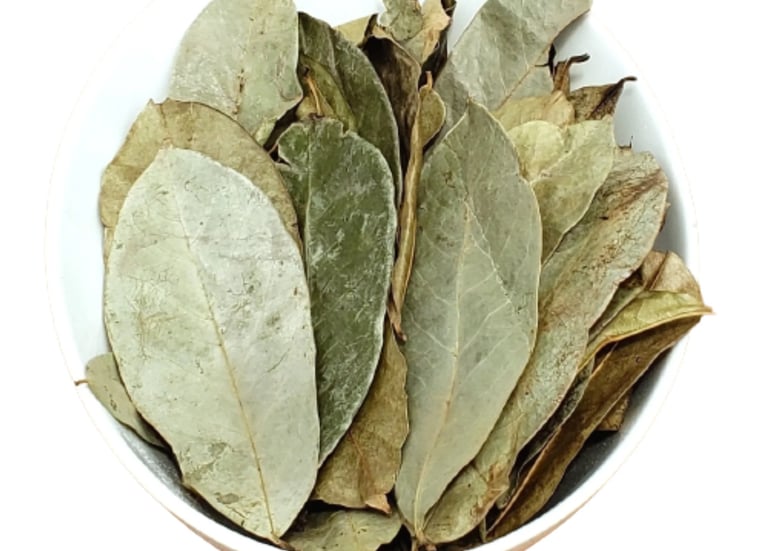Unveiling the Health Wonders of Soursop: Nature's Hidden Treasure
HEALTHNATURE


Introduction
Soursop, scientifically known as Annona muricata, is a fruit that has been quietly making waves in the world of health and nutrition. Its unassuming green exterior hides a treasure trove of benefits that have been cherished by cultures around the globe for centuries.
Legend has it that the indigenous people of the Amazon rainforest referred to soursop as "Graviola," believing it to be a sacred fruit with extraordinary healing properties. This reputation isn't just a matter of folklore; modern science is uncovering a wealth of evidence supporting the incredible health benefits of soursop.
Picture this: nestled in the heart of lush, tropical rainforests, soursop trees stand tall, bearing fruit that's as exotic in taste as it is in appearance. From its prickly green skin emerges a creamy, white flesh, teeming with nutrients and flavor. This juxtaposition of rugged exterior and tender interior mirrors the dichotomy of soursop itself – a rugged survivor in the wild, yet a tender source of nourishment for those who recognize its potential.
As we embark on this journey to unveil the myriad benefits of soursop, prepare to be amazed by the wonders that nature has tucked away in this unassuming fruit. From boosting your immune system to potentially aiding in the fight against chronic diseases, soursop's prowess is nothing short of extraordinary. Join us as we dive into the depths of this green marvel and discover why it deserves a place of honor in your diet and lifestyle.


Historical Context of Soursop
Origins and Cultural Significance
The story of soursop begins in the heart of the lush rainforests of Central and South America, where indigenous communities first discovered and revered this remarkable fruit. For centuries, soursop has been a staple in the diets of these native populations, who recognized not only its exceptional taste but also its potential for health and healing.
As explorers and travelers ventured further into the world, soursop made its way to various corners of the globe. It found a home in the Caribbean, parts of Asia, and Africa, each region incorporating the fruit into its own culinary and medicinal traditions.
Traditional Medicinal Practices
In many cultures, soursop holds a place of reverence in traditional medicine. Indigenous Amazonian tribes have long used various parts of the soursop tree – from leaves to roots – in concoctions believed to treat ailments ranging from digestive issues to fevers. Some communities even used soursop as a topical application to soothe skin conditions.
As the fruit gained recognition beyond its native habitats, its reputation as a medicinal marvel spread. Throughout history, soursop's leaves, seeds, and fruit pulp have been employed in teas, tinctures, and poultices to address a wide array of health concerns. From calming upset stomachs to aiding in wound healing, the applications of soursop in traditional medicine are as diverse as the cultures that adopted them.
Nutritional Profile of Soursop
Vitamins and Minerals
Soursop is a veritable powerhouse of essential nutrients, making it a valuable addition to any balanced diet. Here's a breakdown of its key nutritional components:
Vitamin C: Soursop is rich in vitamin C, a potent antioxidant that supports the immune system, promotes healthy skin, and aids in wound healing.
Vitamin B-complex: This group of vitamins, including B1 (thiamine), B2 (riboflavin), and B3 (niacin), play crucial roles in energy metabolism, nerve function, and maintaining healthy skin.
Potassium: An essential mineral, potassium helps regulate blood pressure, supports proper muscle function, and promotes healthy heart function.
Calcium and Phosphorus: These minerals are vital for strong bones and teeth, as well as muscle function.
Iron: Soursop contains iron, which is important for oxygen transport in the blood.
Beneficial Compounds
Beyond its core vitamins and minerals, soursop contains an array of beneficial compounds:
Fiber: Soursop is a good source of dietary fiber, which aids in digestion, helps regulate blood sugar levels, and supports a healthy cardiovascular system.
Annonaceous acetogenins: These natural compounds, found in soursop, have shown promise in various studies for their potential anti-cancer properties.
Flavonoids and Polyphenols: These antioxidants may help protect cells from damage caused by free radicals, contributing to overall health and wellness.
By incorporating soursop into your diet, you're not only treating your taste buds to a tropical delight but also nourishing your body with a rich array of essential nutrients and health-boosting compounds.










Health Benefits of Soursop
Soursop, with its rich nutritional profile, offers a wide array of health benefits. Let's delve into some of the remarkable ways this fruit can positively impact your well-being.
1. Antioxidant Properties
Soursop is a treasure trove of antioxidants, including vitamin C, flavonoids, and polyphenols. These compounds work synergistically to combat free radicals, which are unstable molecules that can cause cellular damage and contribute to various chronic diseases. By neutralizing free radicals, soursop's antioxidants help protect cells from oxidative stress, supporting overall health and longevity.
2. Immune System Support
The immune-boosting potential of soursop lies in its high vitamin C content, a nutrient known for its role in enhancing immune function. Vitamin C stimulates the production of white blood cells, which are the body's first line of defense against infections. Additionally, the presence of other immune-strengthening compounds in soursop can further fortify the body's ability to ward off illnesses.
3. Anti-Inflammatory Effects
Soursop contains natural anti-inflammatory compounds that may help reduce inflammation in the body. Chronic inflammation is linked to a range of health issues, including heart disease, arthritis, and certain types of cancer. By incorporating soursop into your diet, you may potentially aid in managing and preventing these conditions.
4. Cancer-Fighting Potential
Research studies have shown promising results regarding soursop's potential as a natural cancer-fighting agent. The presence of annonaceous acetogenins, unique compounds found in soursop, has demonstrated inhibitory effects on cancer cell growth in various laboratory studies. While more research is needed, these findings suggest that soursop may play a role in cancer prevention and treatment.
5. Digestive Health
Soursop is a fantastic source of dietary fiber, which is essential for a healthy digestive system. Fiber aids in regular bowel movements, prevents constipation, and supports a diverse and thriving gut microbiome. Additionally, enzymes present in soursop can assist in breaking down food, enhancing overall digestion and nutrient absorption.
6. Cardiovascular Health
The potassium content in soursop plays a pivotal role in regulating blood pressure. By maintaining proper potassium levels, soursop helps counterbalance the effects of sodium, a key factor in hypertension. Furthermore, the fruit's fiber content contributes to lower cholesterol levels, reducing the risk of cardiovascular diseases.
7. Weight Management
Soursop's low calorie and high fiber content make it an excellent addition to a weight management strategy. The fiber promotes a feeling of fullness, reducing the likelihood of overeating. Additionally, the fruit's natural sweetness can satisfy cravings for sugary snacks, aiding in calorie control.
8. Skin Benefits
Soursop's rich vitamin C content, along with its antioxidant properties, makes it a boon for skin health. Vitamin C is essential for collagen production, which keeps the skin firm and youthful. Additionally, antioxidants help protect the skin from damage caused by environmental stressors, contributing to a radiant complexion. Soursop's anti-inflammatory effects may also soothe skin conditions like acne and eczema.
9. Aiding in Diabetes Management
Soursop's potential to regulate blood sugar levels stems from its fiber content, which slows down the absorption of sugars in the digestive tract. Additionally, certain compounds in soursop may help improve insulin sensitivity. This makes soursop a valuable addition to a diabetic-friendly diet.
Incorporating soursop into your diet can be a delicious and nutritious way to reap these incredible health benefits. However, it's important to consult with a healthcare professional, particularly if you have existing health conditions or are taking medications, to ensure that soursop aligns with your individual health needs.


